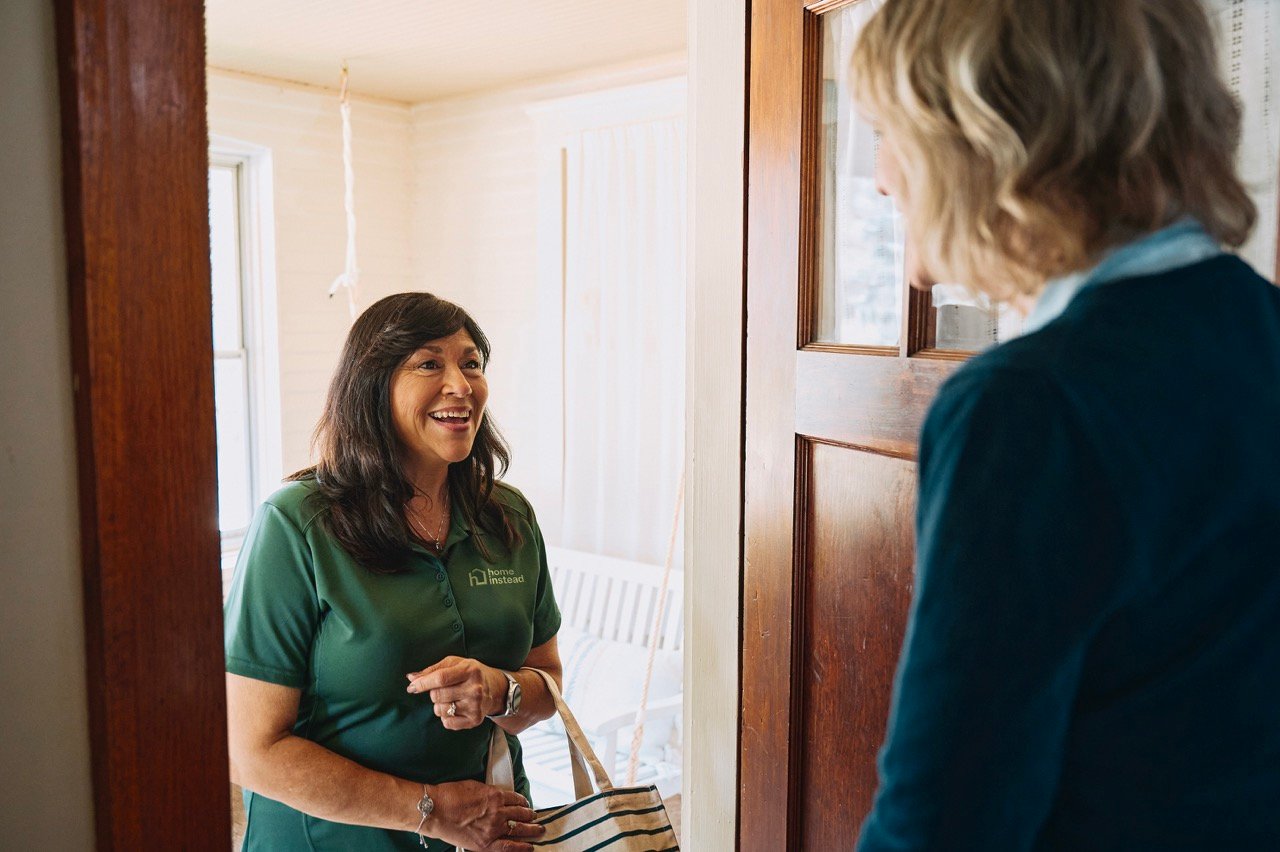
Why Home Care, and Why Now?
What to consider—and how to know when it’s time to get help.
You’re not alone if you’ve ever found yourself wondering, “Do we really need help yet?” or “Should I just keep trying to manage this myself?”.
Choosing to embrace in-home care is a big decision. For many families, the hesitation isn’t about who to hire. It’s about whether to get help at all. The idea of paying for care can feel overwhelming—especially in uncertain financial times.
But here’s what we know from experience—and research:
Nearly 90% of adults over age 65 say they want to age in place (AARP, 2024). In other words, they want to remain in the comfort of their own home, surrounded by familiar routines and the people and things they love.
Home care makes that possible. And with the right support, at the right time, it doesn’t take away independence—it protects it.
Why waiting can be the harder choice
Many families wait for a fall, hospitalization, or crisis to act. But waiting often leads to:
- More stress for everyone
- Fewer options to choose from
- A rushed decision under pressure
- Increased costs when an emergency hits
Even if you’re not quite ready to begin care, starting the conversation today can make all the difference. Talking with your loved one about what matters to them—their routines, their wishes, their “what ifs”—can help you feel more confident and aligned when the time for care does come.
Starting early—even part-time—can also help address small challenges before they grow, making it easier to manage time, expenses, and emotional energy down the road.
Caregiver Chats: “Tough Talks: How to Start the Conversation with Amy Friesen”
In this episode of Caregiver Chats, Dr. Lakelyn is joined by eldercare expert and author Amy Friesen to share compassionate, practical ways to start care conversations—before a crisis forces the issue.
Learn how to recognize the signs, break the ice, and respond when a loved one resists.
Listen now on Spotify
Download the “What’s Next” Toolkit – Our free guide can help you start those conversations with compassion and clarity.
What makes home care worth it?
Home care offers flexibility, personalized support, and the comfort of staying at home.
It’s not about giving up responsibility—it’s about adding the right kind of help.
At Home Instead, the care that we provide comes from someone you can trust: an experienced, professional caregiver—or as we call them, a Care Pro. We use this title because our team members are more than helpers. They’re compassionate caregivers, carefully selected to provide support with consistency and heart.
Your Care Pro might help with:
- Personal care (bathing, dressing, hygiene)
- Grocery shopping, meal prep, and light housekeeping
- Companionship and emotional support
- Transportation to appointments or social events
- Specialized support for people living with Alzheimer’s, dementia, or chronic conditions
But more than anything, they’ll be someone your loved one looks forward to seeing. Someone who listens to their stories, laughs at their jokes, and makes the day feel a little brighter. And for family caregivers, this kind of help can be life-changing. It’s the difference between running on empty and finding room to breathe. With a trusted Care Pro in place, you can take a step back without stepping away, making space to care for your own health, stay engaged at work, or simply enjoy time with your loved one as their daughter, son, or spouse, not just their caregiver. Because when you have the support you need, balance becomes possible and burnout doesn't have to be inevitable.
What about the cost?
Home care is typically billed by the hour, so you only pay for the support you need. Many families start small, with just a few visits a week. We can also help you explore options that may reduce or offset the cost, including:
Family- funded or private pay
Long-term care insurance
Veterans benefits (VA Aid & Attendance)
When you compare it to the cost—and disruption—of assisted living or burnout-related emergencies, in-home care is the simpler, often more affordable and smarter choice.
Caregiver Chats: Veterans Assistance (VA) Benefits with Greg Bean
Dr. Lakelyn is joined by VA expert Greg Bean to explore VA benefits and programs available along with tips for successfully tapping into these resources.
Listen now on Spotify
“We wish we had started sooner.”
That’s the most common thing we hear from families.
Not sure you’re ready?
That’s okay. You don’t have to figure it all out today.
But when you’re ready, we’re here—with tools, guidance, and a caring team that understands what you’re going through.
Here's what you can do next:
- Download the “What’s Next” Toolkit: Our free guide is designed to help you start care conversations with compassion and confidence. Talking about care can be tough—this resource gives you the words, timing, and tools to make it easier.
- Schedule a Free Consultation: Talk with a local care expert about what’s possible for your family. No pressure. Just a friendly conversation about your options.
- Explore Our Services: Discover the full range of support we offer—from uplifting companionship and help around the house to personal care, dementia support, and around the clock care. Whatever your loved one needs, we’re here to help them live safely and comfortably at home.
Because sometimes, the right time for help… is before you need it.


